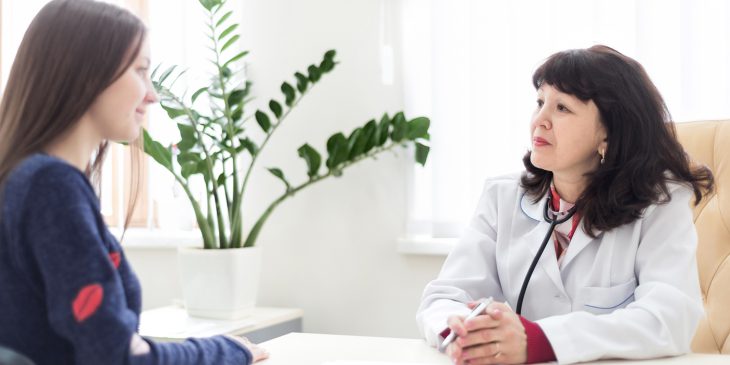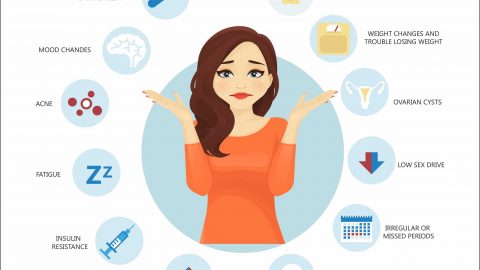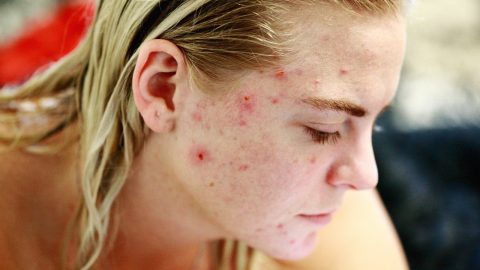5 things to know about PCOS
Irregular Periods, infertility, excessive hair loss, over-weight or obese, bloating, acne, mood swings, or nausea are the symptoms that can be added to the other side effects like heart problems and diabetes. What do you get? (PCOS) Polycystic Ovary Syndrome. Ten million women across the globe have Polycystic Ovary Syndrome (PCOS). Did you hear the term before, if yes, what does it mean?
Polycystic Ovary Syndrome (PCOS) is a term acquainted to many but identified by very few of us. It is an endocrine syndrome which is very common amongst the women of all age groups. But the major problem is that many women with PCOS do not even realize it and getting it treated is far behind question.
To start with, here are the 5 important things every woman with PCOS should know about:
- No identified cause
There is no need to stress about recognizing the reason why a woman suffers from polycystic ovarian syndrome. That is because even experts have not been able to identify yet. Although this syndrome can be hereditary in most of the cases, there is no other definite root cause identified.
The polycystic ovarian syndrome is an extreme chronic condition that occurs in about 5 to 10 percent of women. It disturbs the regular menstrual cycle and also increases the level of male hormones (androgens) in women. These elevated levels of hormones can cause excessive hair growth in several areas of the body, such as the face and back, which is also known as hirsutism. It can be a reason for male-pattern balding or thinning of hair. These hormones can also be the basis of severe acne. Although PCOS is not entirely revocable, various treatments can improve the condition and recover the symptoms. - Hormonal imbalance from the Brain and the Ovary Are the Cause
Even though the syndrome is not a deadly element, but it can be the root cause of several diseases later in the life of women with PCOS. These include infertility, heart problems, diabetes, abnormal bleeding from the uterus, abnormal blood pressure, etc.
As the precise cause of PCOS is not yet identified, it is mostly believed that the pituitary gland is responsible for producing two of the essential hormones that prepares the body to ovulate. These are called luteinizing hormone (LH) and follicle-stimulating hormone (FSH). This hormonal imbalance happens in the pituitary gland of the brain and in the ovary itself.
The production of hormones happens in a very organized sequence in women without polycystic ovarian syndrome who have regular menstrual periods. In women with PCOS, the sequence misbalances, and it further results in a lack of ovulation and irregular periods. In women without PCOS, the ovaries produce female hormones, including estrogen and progesterone, as well as small amounts of androgens (male hormones). In women with PCOS, the ovaries release excessive male hormone, which results in excessive hair growth (or hair loss in male patterns) and acne. - The PCOS cysts are not actually cysts
Cysts are the consequence of eggs that never grew enough to be suitable for ovulation. All eggs mature within fluid-filled called follicles inside the ovary. The egg Follicles need to reach a size of at least 14 millimeters to be suitable for ovulation. In women with PCOS, follicles hardly grow beyond 10 millimeters. Since they do not grow up to the appropriate point at which they can ovulate, they amass in the ovary and look like cysts. - PCOS can elevate the risk of long-term health issues
Still, there are a lot of women who don’t even know that they suffer from PCOS. You don’t need to have all the symptoms that indicate PCOS. It is essential to get the diagnosis done at the right time to overcome PCOS symptoms. Otherwise, the complications in women with PCOS are seen to be adverse.
Women with PCOS are at high risk of infertility, diabetes, heart disease, and uterine cancer. If you think you have PCOS, it is essential to see a doctor regularly to overcome PCOS symptoms and also to prevent other long-term health conditions. - Diet and Exercise Work Helps a Treatment
There is no hard and fast medication or treatment option available for polycystic ovarian syndrome, but after the right diagnosis, your gynecologists know the best about your body type. So, different medications are prescribed according to the symptoms.
Women with PCOS have the power to reduce their risk of long-term health problems not only by the medication but also by maintaining a healthy diet and regular exercise. Sometimes keeping a healthy lifestyle is all it takes to prevent diabetes and heart disease. But, in some women, medications may also be necessary, mainly in women with infertility. A regular check-up is recommended to keep a check on Polycystic ovarian syndrome.
Conquer PCOS is an Initiative by the Metropolis group to support PCOS awareness amongst young women and girls with Polycystic Ovary Syndrome (PCOS). Conquer PCOS promotes support PCOS awareness programs to alert the public and make them aware of PCOS. This initiative is to help young women and girls to overcome PCOS symptoms and reduce their risk for life-threatening diseases caused because of polycystic ovarian syndrome.














